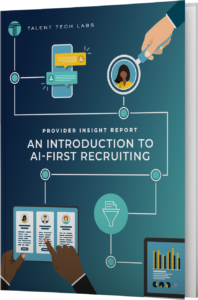COVID- 19 has wreaked havoc on the global economy. For a short while, optimists were predicting a V-shaped recovery. Many once reasoned that if business was sound and growing before the COVID-19 outbreak, the firm would rebound rapidly once the lockdown lifted. Now about 8 weeks in, that theory is pretty much in tatters. Jerome Powell, the Federal Reserve Chairman, made clear that this fantasy was effectively “off-the-table”.
CEOs of the Fortune 500 largely concur with Powell’s statement. Alan Murray’s survey of leading executives at top US firms published in Fortune sheds new light on the deep recovery firms must navigate.
75% of CEOs agree that corporations must accelerate the #TechnologicalTransformation of their businesses. Explore more of their predictions in the @TalentTechLabs blog: Click To TweetThe majority (58.3%) of the CEOs predict that economic activity will not return to pre-pandemic levels until Q1 2022. 36.7% felt that companies’ capital spending levels will not return to pre-pandemic levels until 2021. Another 27% thought the economic rebound will not happen until 2022.
38% of the CEOs predict employees will return to their normal workplace in June of 2021. As many as 26% of the respondents predict that work from home will be here indefinitely. These distortions to the former ways of work are nothing short of profound. When taken in aggregate, these prognostications illustrate the widening gap between how successful businesses once ran with how they must operate in the future to survive.

“Fortune 500 CEO Survey” Murray, Alan. Fortune. 14 May 2020.
One dramatic callout from the survey is 75% of CEOs agreed that corporations must accelerate the technological transformation of their businesses. While other responses about the pandemic recovery cycles had a scattering of predictions, from dire-to-worse, on this point CEOs were nearly unanimous. There is widespread recognition for businesses to undergo a digital transformation urgently in order to survive the recovery.
One could argue that forward-thinking companies started tinkering with the idea of transforming their organizations and processes before the pandemic. Before March of 2020, many executives believed there was no greater priority than undertaking digital transformations. Now with the massive work disruptions the pandemic has wrought, from the ways in which teams collaborate to how services are delivered, the consensus on urgent digital business transformation has a very people-and talent-orientated overtone.
An Introduction to AI-First Recruiting
By reading this report, you will learn about the key concepts around artificial intelligence, how AI is manifested today in recruiting technology, and where the industry is headed.

Article continues below
The truth is that the recruitment and talent acquisition space has been in a technological revolution for more than four years. Many companies have been leveraging new tools to recruit highly sought-after talent. When employment levels were at an all-time high, technology had become imperative in recruitment. Companies’ need to secure top talent to fuel pre-pandemic growth was already driving technological innovations to new heights. With companies’ high demand for talent, workers had many choices. This demand triggered an explosion of new platforms to deliver the right talent for the right task efficiently.
Talent Tech Labs, a research advisory firm that focuses on emerging technological innovation, has been tracking over 2,000 new technologies for the hiring stages of the talent continuum. There has been a continuous cascade of technology coming to market to transform the way people find work and help companies find the best talent needed to fuel growth. The ecosystem of these solutions includes talent sourcing, engagement, selection, and hiring with machine learning, advanced analytics, gamification, and artificial intelligence.
38% of Fortune 500 CEOs predict employees will return to their normal #workplace in June of 2021. Read more in the @TalentTechLabs blog: Click To TweetWith the sidelining today of over 23 million US workers, about 15% of the workforce, the challenges of getting them back into jobs will present entirely new hurdles for companies and workers alike. Only 3 months ago, companies experienced the gravity of talent paucity. Now as companies gradually restart their hiring they will instead have the bane of too many choices. Before the pandemic, companies were increasingly augmenting hiring selection with the use of algorithms and artificially intelligent systems.
As recruiters’ inboxes will soon be inundated with millions of people trying to regain footing through their next job search, the equation will be inverted. The enormity of the challenge to find the right people to hire amidst the inevitable clamor of so many applicants vying for roles will create substantial drag and cause frustration all around. Only through the rapid adoption of the most insightful and efficient technological solutions will companies have a glimmer of hope in assembling the best talent for the new era. Job descriptions of the skills required for the new normal have yet to be written. How does one effectively hire for the uncertain requirements companies will be building their futures around?
According to David Francis, Talent Tech Labs’ Director of Research, technology priorities are slightly shifting, but in many ways have become more important. Francis states:
Prior to the pandemic, most companies were just starting to figure out how they could use technology to fix or optimize a lot of their broken recruitment processes. We were seeing y/y growth in adoption rates in tech tools across the board, from Candidate Relationship Management to Video Interviewing to AI-based Assessments to Bots. Even with the inverted supply and demand for talent, there’s a renewed focus and energy behind leveraging technology that is really accelerating.
Meanwhile, when focusing on the talent that companies retain through this downturn, it’s becoming plainly apparent that the ways businesses engage with the workers and the work that has to be done is also being transformed radically. A virtual work environment presents new challenges such as how to engage a workforce and to equip them with the tools for success. Talent Tech Labs’ Trends Report “Mastering Remote Work Management” highlights the ways progressive companies have been able to adapt to a virtual work model. For a number of tech companies, the transition to remote work was not a hurdle. For the majority of companies though, it has been a learn-as-you-go process.
In the Trends Report, Francis comments, “The heartening news is that the number of companies who have adapted (or begun adapting) to a remote work model proves that companies have a say in their future. There’s a lot that is out of a firms’ control, but the decision of whether to adapt and adopt to changing paradigms and new technology; companies own that.”
The absence of technology provisioning has left many to figure it out on the fly. For companies who have not adopted the cycle of technology enablement, the pandemic is laying bare the weak spots that will place a strain on maintaining business levels and will prohibit moving forward in the new post-pandemic economy.
Make no mistake; new business models will rise up out of this pandemic. Digital transformations will enable radical new ways to deliver value to customers, to alter competitive landscapes, and to change the underlying economics of markets. Assuming entrepreneurs and developers will continue to conjure the technologies to push the boundaries, a new ecosystem of talent solutions will emerge for the new normal quicker than most might fathom. The question is will the business leaders across the US economy be in a position to effectively harness these technological developments in order to survive and thrive?
Well-funded and forward-leaning companies will be able to capture the untold systemic opportunities these changes unleash quickly, while the vast majority of businesses might sit paralyzed on the sidelines. The disparity in rewards and riches for early movers is very likely to be even more accentuated. If poorly positioned businesses do not quickly reinvent through technology adoption, they risk perilous decline and extinction.
A sea of change is upon us. Businesses that most agilely identify and implement technological innovations will undoubtedly be the next generations’ winners. On this point, the CEOs of the Fortune 500 readily agree. What will it take for businesses across the US to recognize technological innovation as imperative in time to plot their strategies for success in the new normal?
About the Author: Brian Delle Donne is the Co-Founder & President of Talent Tech Labs. He has been a leading force in driving innovation through his career in operating roles in the industry. After serving as Chief Operating Officer at both large public and privately held staffing and project engineering firms he has amassed a wealth of insight into effectively applying innovation.
